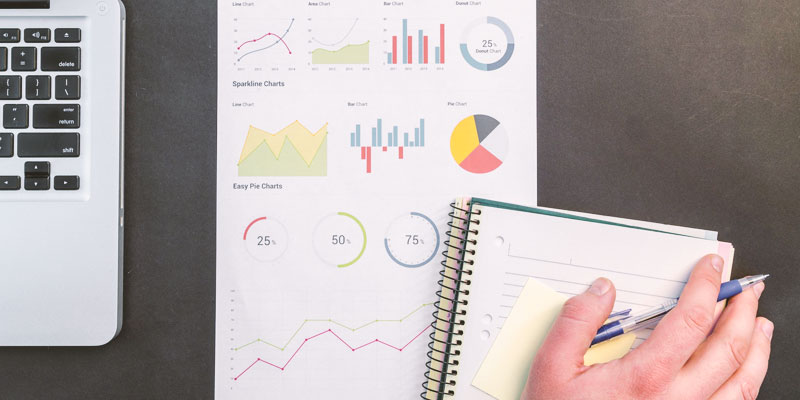Traditionally, the dawn of a new year brings a sense of optimism and hope. This year, however, the outlook is a bit different. While we were thankful to leave 2020 behind, the uncertainties and instability about what lies ahead still persist. Now’s a perfect time to take stock of the current situation, rethink what’s important today, and plan for the prospect of brighter days ahead.
The dramatic events of the past year have changed our lives in many ways. Things that seemed necessary a year ago may no longer carry the same significance, which means you should be adjusting your goals, values and priorities. The pandemic has altered our well-intended plans, so it’s critical to examine your finances and set financial goals.
Keeping track of your money means understanding how much comes in and how much goes out. The former is rather simple as you depend on monthly paystubs and income statements, but the trickier part is determining where your money goes.
Analyze your expenses
Taking inventory of every dollar you spend can be a tedious task, but it’s also a critical step to painting a realistic picture of your finances, and will ultimately help identify areas where you can save.
Start with your fixed expenses. These are your necessary, ongoing costs and commonly include mortgage or rent payments, condo fees, car payments, property taxes and insurance premiums. Usually, these expenses can’t be changed or eliminated but, in the current COVID-era, you may have some flexibility. For example, if you no longer have a need for two vehicles, you may want to sell one and remove a car payment.
Variable expenses are also necessary but, unlike fixed, they can fluctuate from one month to the next. Items such as groceries, utilities, transportation, gas, vehicle maintenance and clothing are all expenses over which you have some control. Simple efforts such as adjusting your thermostat, reducing appliance use during high peak hours or turning off lights when not in use can help reduce your bills. And if you find yourself working from home more, you’ll likely be able to save on gas payments, not to mention a diminishing need for work attire.
Evaluate your spending habits
Money spent on items such as entertainment, dining out, subscriptions, personal care or vacations is considered discretionary. These are expenses that you can cut back or eliminate entirely. The goal is not to deprive yourself of things you enjoy. But, if the last year has taught us anything, it’s how to be resourceful and discover new ways to distract ourselves, stay active or just unwind. Here are a few areas to consider:
- Cell Phones. In today’s competitive mobile phone space, you can usually negotiate a reasonable plan, just make sure you don’t extend beyond your basic package. Avoid paying more for additional texts or long distance calls and jump on a free Zoom call instead.
- Subscriptions. Whether you subscribe to the hottest housing trends magazine, digital music platform or online streaming service, subscription fees can add up. We’re subscribing more because we’re at home more. Companies are making it easier than ever to sign up for services we may not need and automatic renewals make them hard to manage. Avoid the temptation of over subscribing just to compensate for not being able to get out as much. Stick to one or two options that offer the most variety for your family and cut out the rest. Look for free app options and put aside the money you save.
- Gym memberships. During the last year, there’s been no shortage of new and innovative ways to stay healthy. Recreation and fitness programs have moved to online platforms so, although you may miss trips to the gym, or swimming at the local pool, use this time to save some money. Ask your gym to pause your membership, join an online fitness group or look into a good workout app.
- Takeout & Delivery. Many of us are finding comfort and convenience from ordering ready-made meals. This habit can get costly, quickly, so set a monthly limit, stick to special occasions, and dig into your pantry and get cooking at home. The same goes for that specialty coffee and glass of wine that bookend your day. Brew your own coffee at home and limit your alcohol to weekends only – you’ll appreciate it more and be surprised at how much you save with fewer trips to the liquor store.
Focus on your savings
The economic fallout from the pandemic has reinforced the importance of having an emergency reserve as part of a good financial plan. Before the pandemic, your goals may have included a special vacation, a large purchase or early retirement. And while still important, their significance has likely shifted and been replaced by a heightened need to establish a more robust rainy-day fund. Even if you can’t put aside as much as previous years, the importance is to be consistent. Look into high-interest savings accounts, term deposits or GICs, or take advantage of opening a tax-free savings account, which shelters your investment. It’s also important to make regular contributions to your retirement through a registered retirement savings plan, which can also help reduce your taxes.
Pay down your debt
While saving today is essential for tomorrow, the issue of debt has become a real problem since the pandemic hit, so make sure your budget includes a debt repayment plan. Lower household spending costs due to COVID-19 should help you pay down debt balances and specific goal-setting will help you get there. If you’ve been really struggling, speak to your creditors, look into government relief programs and do your best not to fall behind on payments. Your mortgage agent can also examine how you could benefit from a refinance to consolidate debt.
Have questions about building a budget? Answers are a call or email away!
